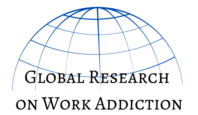Prevalence of work addiction
The available data suggests that work addiction (and its hypothesized early form of study addiction) is generally significantly more prevalent than most other addictive behaviors.
Currently, information on prevalence is based on psychometric testing of working populations (as well as general and student populations) rather than clinical data because work addiction is not formally recognized as an addictive disorder in the official classifications of diseases and disorders. Such prevalence studies suffer from usual shortcomings related to ad hoc cutoff points and nonrepresentative data (in most cases).
A review of research based on various cutoffs found prevalence rates of work addiction of about 10%.
Also, a substantial portion of cases of OCPD includes the so-called “workaholism” symptom. OCPD is the most prevalent personality disorder among the general population (3%–8%).
Studies using a psychometric screening tool grounded in addiction framework and clinically anchored cutoff score show estimates of work addiction ranging from 6.6% to 20.6%. The prevalence in a national representative sample in Norway showed 8.3% addicted to work, and in a representative sample in Hungary it was 20.6%.
The relatively high prevalence in comparion to other addictive disorders was also found in studies on nationally representative samples of general population in Poland using different screening method. These were conducted for the Ministry of Health in Poland. They showed:
-
- 10.4% in 2012
- 19.1% in 2015
- 9.1% in 2019
The same studies showed prevalence of:
- pathological gambling/gambling addiction of 0.7% in 2015, 0.9% in 2019
- internet addiction of 0.2% in 2012, 0.1% in 2015, 0.03% in 2019
- social media addiction of 1.1% in 2019
- shopping addiction 3.5% in 2012, 4.1% in 2015, 3.7% in 2019.
Similarly to other studies around the world, they strongly suggest that work addiction is more prevalent than most of the other addictive disorders. An overview of research on prevalence of behavioral addictions from different countries can be found here.
The estimates of work addiction based on a similar method of estimation vary considerably from country to country, suggesting a significant role of macro-level factors contributing to work addiction.
Based on the available data, it seems that countries with established economies and good social care systems have substantially lower rates of work addiction in comparison to post-communist and developing countries.
